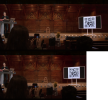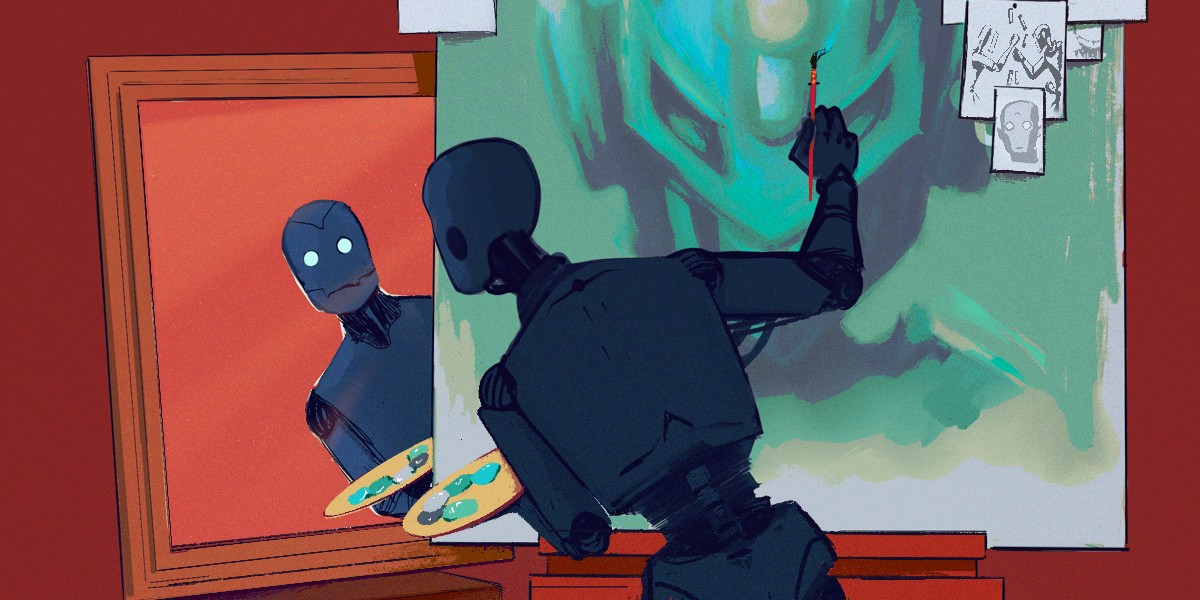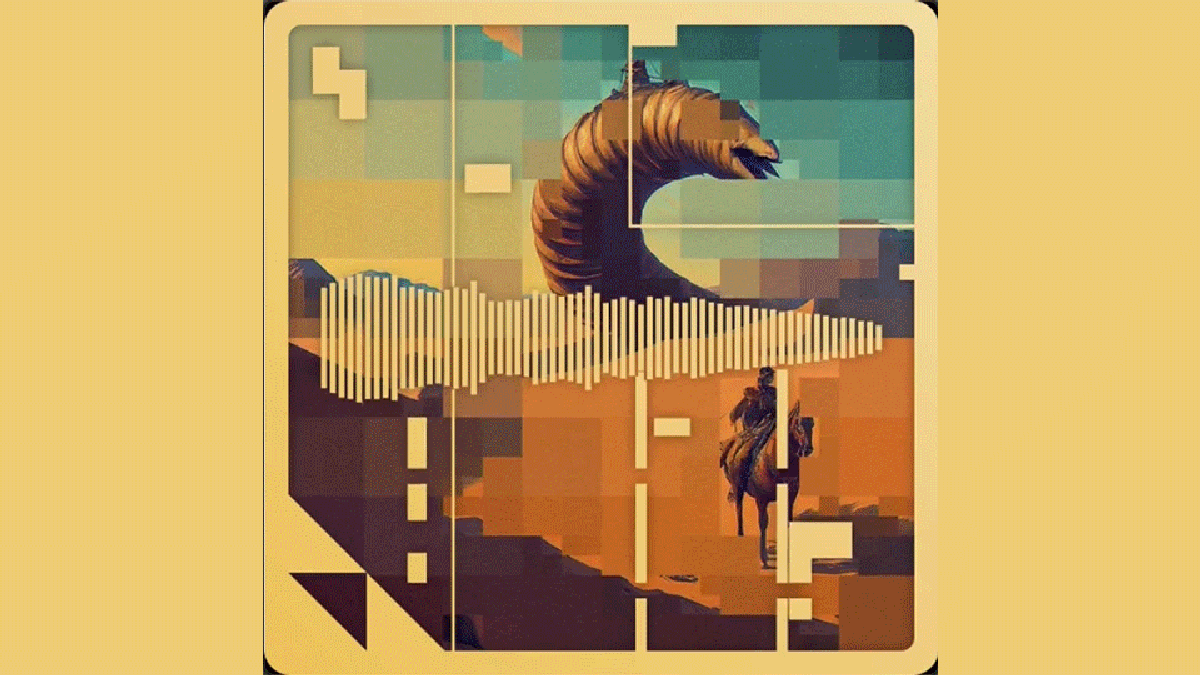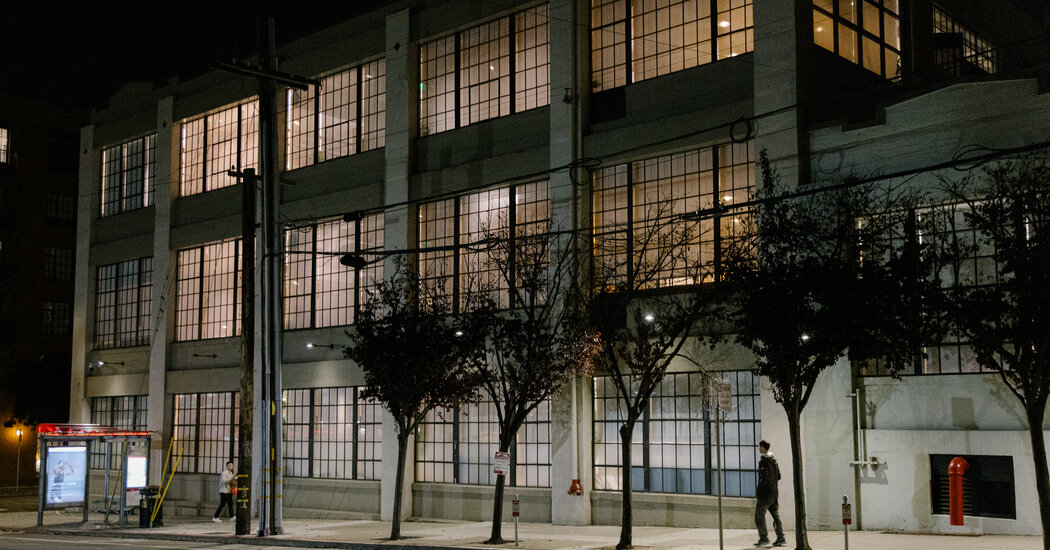Urdlen's best boy
Deep Crawler
- Joined
- May 23, 2023
- Messages
- 883
- Reaction score
- 1,881
Follow along with the video below to see how to install our site as a web app on your home screen.

Note: This feature currently requires accessing the site using the built-in Safari browser.
Here's something I did about 9 months ago using Stable Diffusion. I wanted this clip from a YouTube video to be a little less wide to fit more nicely onto a web page. I just cut a chunk out of it, put the two sides together, and had the AI model touch it up. It's not perfect, but I think it's passable. This is definitely on the "clean it up a bit" end of the spectrum, but you're 100% right this is just going to be part of the standard toolkit at some point.Generative AI is going to be a substantial part of all our work lives, I think. I just hope that it gets sensibly regulated - you should be required to license your training sets, for example, and it should be completely illegal to use any kind of machine learning model to make decisions about, e.g. loan approvals and the like. We shall see.
More on topic. I think it's clear that companies will start allowing AI, apart from anything else, it's going to become part of the normal workflow of most digital artists. Maybe not the prompted image generation side of thing so much, but getting AI to fill in the background when you move something or want to expand the canvas and so on are just going to become completely normal and the line between "generative art" and "using the AI to clean up a bit" is going to be completely blurred.

It is not new. David Kelly is known as a strong proponent of using AI-generated art. He has told numerous folks to go pound salt when criticized.I just saw this on DTRPG:
DriveThruRPG
www.drivethrurpg.com
Selling AI generated Art? In Art packs? This seems a bit questionable...
Why? It isn’t like you have to buy it and it takes effort to work with the AI generated images to assemble a collection to put up for sale.I just saw this on DTRPG:
DriveThruRPG
www.drivethrurpg.com
Selling AI generated Art? In Art packs? This seems a bit questionable...
Selling AI generated Art? In Art packs? This seems a bit questionable...
That is a valid point and the main issue I could see, if a specific generator is found to be culling images illegally I could see having to take down any products that came from it.I don't think there's an inherent problem with doing that, so long as it’s clear what you are buying. However, I do wonder what will happen with the legalities around it depending on which generator he used.
The largest issue with AI is provenance. If you don't know the provenance, you don't know if it was trained on works that the AI didn't have rights to. The more you lengthen that provenance stream, the harder it is to police.Why? It isn’t like you have to buy it and it takes effort to work with the AI generated images to assemble a collection to put up for sale.
Given DTRPGs stance on AI art, I was just surprised.It is not new. David Kelly is known as a strong proponent of using AI-generated art. He has told numerous folks to go pound salt when criticized.
Machine learning has been around for longer than most people realize. It has even been involved in healthcare for a while now. Health insurance companies use AI models to determine which treatments they will cover. At least, that's what they're being sued for.As long as it isn’t misrepresented I don’t see the issue. AI is here to stay whether people like it or not. It is used heavily by businesses and is making headway into government to include public safety.

Machine learning has been around for longer than most people realize. It has even been involved in healthcare for a while now. Health insurance companies use AI models to determine which treatments they will cover. At least, that's what they're being sued for.
Training an AI is Fair Use. What an AI generates is public domain.The largest issue with AI is provenance. If you don't know the provenance, you don't know if it was trained on works that the AI didn't have rights to. The more you lengthen that provenance stream, the harder it is to police.

Shades of the Mechanical Turk chess-playing device.
That is incorrect. They haven't ruled whether you can train an AI on copyrighted material. That's what all of the hubub is about. The EFF can make whatever interpretations they want. The truth of the matter is they are not trial court. Which is the reason for the terminology they use.Training an AI is Fair Use. What an AI generates is public domain.

How We Think About Copyright and AI Art
Artists are understandably concerned about the possibility that automatic image generators like Stable Diffusion will undercut the market for their work. We live in a society that does not support people who are automated out of a job, and being a visual artist is an already precarious career.In...www.eff.org
Like copying to create search engines or other analytical uses, downloading images to analyze and index them in service of creating new, noninfringing images is very likely to be fair use. When an act potentially implicates copyright but is a necessary step in enabling noninfringing uses, it frequently qualifies as a fair use itself.
The EFF is usually on the ball on these issues.That is incorrect. You can't train an AI on copyrighted material. That's what all of the hubub is about.
Note the terminology they use when saying that. The reason? It hasn't been ruled on.The EFF is usually on the ball on these issues.
It's fair use until someone rules that it isn't, which would be easy to do if opponents could prove any of their claims. Which they have not. Nor are they likely to do so, we're talking about microsoft and adobe, they have teams of lawyers, not some ai copyright cowboys.They haven't ruled whether you can train an AI on copyrighted material.
They use those words for a reason.
Thats... not how copyright works. And you can believe if it's ruled against, people that think that are going to be scrambling.It's fair use until someone rules that it isn't, which would be easy to do if opponents could prove any of their claims. Which they have not. Nor are they likely to do so, we're talking about microsoft and adobe, they have teams of lawyers, not some ai copyright cowboys.
My personal get is even if they rule it's not fair use , companies will figure out what is being learned and teach them to come to the same results another wayThats... not how copyright works. And you can believe if it's ruled against, people that think that are going to be scrambling.
If you believe someone violated your copyright with a derivative work, you file a claim. Then the supposed violator has to prove that it isn't derivative by proving it's a transformative work, and the results of that system have been really unpredictable on what's fair use and what isn't. That would cover the output of ai, and work would have to be judged on a case by case basis under the current system.Thats... not how copyright works. And you can believe if it's ruled against, people that think that are going to be scrambling.
But what I'm saying, is that you aren't protected by Fair use just de facto. Several people have found this out the very hard way.If you believe someone violated your copyright with a derivative work, you file a claim. Then the supposed violator has to prove that it isn't derivative by proving it's a transformative work, and the results of that system have been really unpredictable on what's fair use and what isn't. That would cover the output of ai, and work would have to be judged on a case by case basis under the current system.
The way denoising generation works is by analysis of an art's properties by a model that then informs another model how to draw. A lot of opponents claim that this is use. I see this as learning, especially since the model that draws never "sees" source images, and because the information about source material is so small (8 bits). But my opinion has very little to do with copyright law.
The fact is that someone is going to have to decide that the indexing done by the learning model is in fact Use, and legally distinct from the protection afforded search engines like google in the DMCA. If that's the case, it's likely to be ruled not fair use, as a non-human can't create a copyrightable work, or (I think) a transformative one. But I'm not a copyright lawyer, and it's probably going to be eventually decided by a bunch of geezers in robes who don't understand tech at all.
I remember when Amazon dropped their AI recruiting algorithm because they couldn't get it to stop being sexist.Machine learning has been around for longer than most people realize. It has even been involved in healthcare for a while now. Health insurance companies use AI models to determine which treatments they will cover. At least, that's what they're being sued for.
And the algorithm wouldn't work on Saturday.I remember when Amazon dropped their AI recruiting algorithm because they couldn't get it to stop being sexist.

 gizmodo.com
gizmodo.com
Yeah. And even if it ends up being ruled as fair use (there's no way this doesn't eventually end up in court) here in the US, I find it extremely unlikely that the EU courts would follow suit. Which means selling AI art packs becomes a special case where business rules have to be applied at the point of sale. I'm willing to bet that's more hassle than small sites like DTRPG want to get into.That is incorrect. They haven't ruled whether you can train an AI on copyrighted material. That's what all of the hubub is about. The EFF can make whatever interpretations they want. The truth of the matter is they are not trial court. Which is the reason for the terminology they use.
Yeah, I am 90% sure the EU will rule against on this and will so will the UK. Any exceptions carved out will be for non commercial/academic use. Even with the US having more generous fair use laws I'm not sure the AI companies will win, especially for commerical use. IANAL, but this seems pretty murky to me.Yeah. And even if it ends up being ruled as fair use (there's no way this doesn't eventually end up in court) here in the US, I find it extremely unlikely that the EU courts would follow suit. Which means selling AI art packs becomes a special case where business rules have to be applied at the point of sale. I'm willing to bet that's more hassle than small sites like DTRPG want to get into.

Dune, the Broadway Musical and 8 Other Brain-Dead Songs From Udio's AI Music Generator
Despite lots of VC investment and buzz, AI "music" continues to be little more than a very expensive joke.gizmodo.com

Training an AI is Fair Use. What an AI generates is public domain.
Yes, but only if they are unmodified. If a person took the AI image and reworked them then that work is probably copyrightable. But it would probably have to pass the transformative standard. I.E., adds "new expression, meaning, or message"This is kinda interesting because I'm currently reading Golgotha by Greg Saunders which is littered with AI art (from Midjourney).
Now I wouldn't be interested in this but surely this could mean anyone could copy out these art pieces and re-use them?